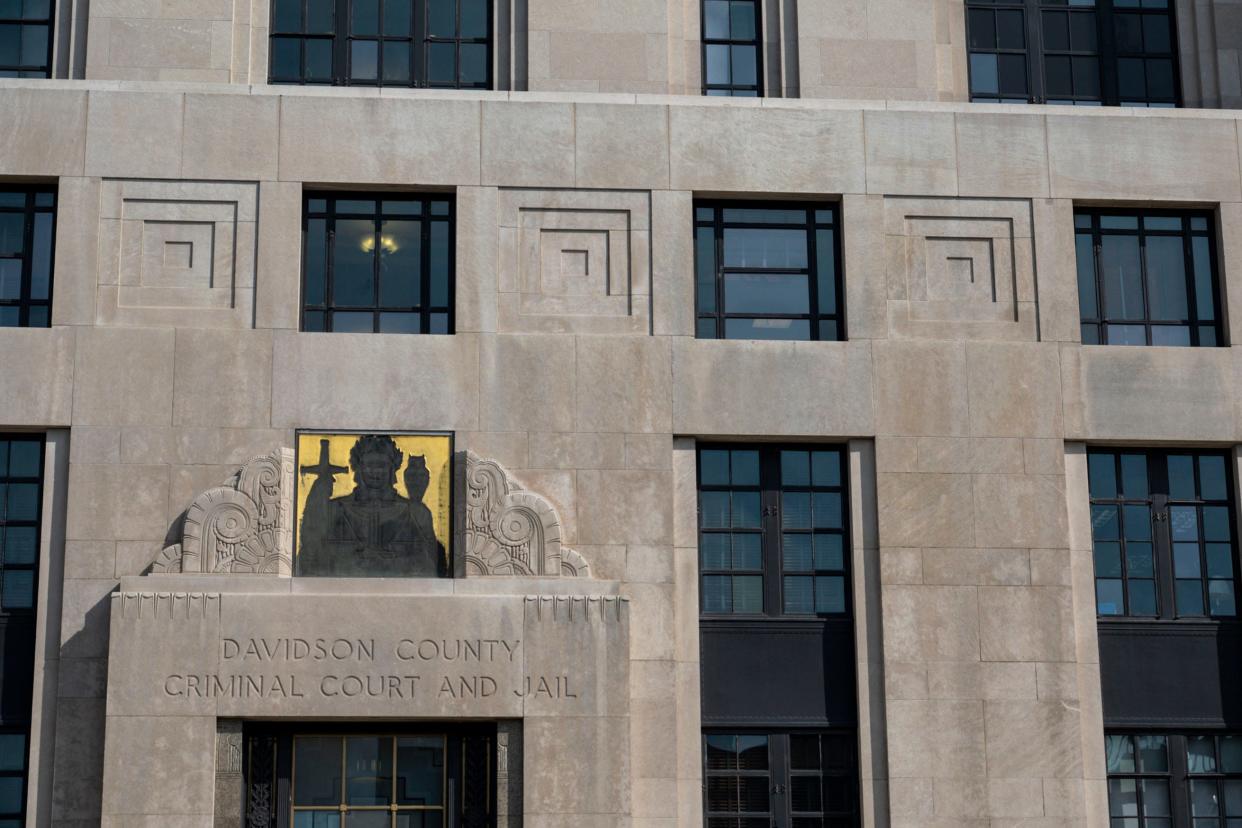Bills affecting TN justice system passed in 2024: Prison time, bail rules, mental health
While debates over the governor's controversial private school voucher program and gun control often took center stage during the Tennessee General Assembly's 2024 legislative session, lawmakers were spending much of their time from January to late April making changes to Tennessee's criminal justice system.
The GOP-controlled supermajority kept up its tough-on-crime attitude by lengthening sentences, allowing more juveniles to be tried as adults and trying to expand when the death penalty can be imposed. In the wake of recent tragedies, lawmakers also passed measures aimed at protecting victims of domestic violence and requiring mental health treatment for some mentally incompetent defendants.
Here are some of the bills affecting the justice system, from arrest to sentencing, that the Assembly passed in 2024:
Jillian’s Law requires treatment for mentally incompetent defendants

Named in remembrance of Belmont University student Jillian Ludwig, who was killed by a stray bullet while on a walk in November, Jillian’s Law requires that people who are found mentally incompetent to stand trial for a felony be committed to a mental health facility for treatment. The man charged with firing the bullet that killed Ludwig had been arrested many times before and found by a court to be mentally incompetent.
The law also prohibits those who are committed to a mental health institution under the law from owning or possessing a firearm.
The bill received unanimous support in both chambers, although some lawmakers questioned whether the state has enough facilities to treat all the individuals required to be committed under the law.
Changes to prison sentences
Prison sentences will not be getting shorter in Tennessee.
As of now, people incarcerated in Tennessee prisons can earn credits called “good time” that can reduce the length of their sentences by up to 15%. Under a new law going into effect July 1, those serving a sentence of two years or more can earn good time, but it will only shorten when they can first go up for parole, leaving the full length of their sentence unchanged.
Another law allows judges to order people convicted of misdemeanors to serve 100% of their sentences in a correctional facility, up from the prior 75% maximum.
Those convicted of child rape could be sentenced to death

A bill on Gov. Bill Lee’s desk would allow juries to impose the death penalty when an adult is convicted of aggravated rape of a child under 12.
The bill passed through both GOP-controlled houses of the General Assembly mostly along party lines.
Supporters plan to use the bill to challenge a 2008 U.S. Supreme Court decision that prohibits capital punishment in cases where the victim did not die.
Rep. Gloria Johnson, D-Knoxville, worried that victims may be hesitant to report sexual assault knowing that it may result in an execution, particularly if the offense was perpetrated by a family member. Lee has indefinitely paused executions in Tennessee after a report found several issues with how the state puts the condemned to death.
Children in the justice system: Trying teens as adults, fining parents and recording interrogations
Lawmakers pushed through bills that change how juveniles interact with the justice system, including provisions that allow children above age 16 to receive both a juvenile sentence and a sentence of adult probation.
Under the bill, which awaits Lee’s signature, when someone age 16 or above is convicted of a crime that would be a class A, B or C felony if it was committed by an adult, then a judge can impose a period of probation to begin after they turn 18 and end at some point before they turn 25. Another law, already signed by Lee, will allow courts to try minors 15 and up as adults when they are of accused of organized retail crime or firearm theft.
Another bill on Lee’s desk called the Parental Accountability Act would impose a fine of $1,000 against the parents of a child who commits a second or subsequent offense. If the family can’t pay, a judge can require the parent or guardian to perform community service.
In July, a new law will go into effect requiring that interrogations of children accused of crimes be recorded by audio or video unless there is a technical issue with the recording equipment.
Wheels in motion to expand when bail can be denied

An effort to let judges deny bail in more cases made it through the first part of a multiyear process.
The General Assembly passed a resolution for an amendment to the Tennessee Constitution that would allow judges to deny bail to people charged with terrorism, murder, aggravated rape of a child, aggravated rape and grave torture. Under current law, judges can deny bail only in first-degree murder cases.
The measure was introduced to curb crime committed by defendants out on bail for other charges.
The proposed amendment will next have to be approved in 2025 or 2026 by a two-thirds vote of the legislature before going to voters. It would need 50% approval by popular vote in the 2026 gubernatorial election.
Law bars local traffic stop reform
A direct rebuke of reforms in Memphis in the wake of Tyre Nichols’ death, the legislature passed a law preventing local governments from enacting policies that limit what types of traffic stops police can make.
Nichols, a 29-year-old Black motorist, was fatally beaten by Memphis police officers during a traffic stop that police claimed was for reckless driving, although the city’s police chief later said she could not find any evidence of probable cause for the traffic stop.
In response, the Memphis City Council passed an ordinance prohibiting “pretextual” traffic stops — ones in which police use the pretense of a minor infraction like a broken taillight to search for evidence of other crimes without probable cause.
Police must tell feds if someone lacks legal immigration status
A new law requires law enforcement to communicate with the federal government if they learn that someone is in the country without legal status, and it also mandates that they cooperate with federal officials in the identification, apprehension, detention or removal of undocumented immigrants.
The law goes into effect July 1.
Officers have been only “authorized” to communicate with federal immigration authorities once learning of a defendant’s immigration status since the law was put on the books in 2018. Now that they are required, some law enforcement offices — including Nashville’s police department — worry it may erode trust among immigrant communities. Immigrant rights groups also say it permits racial profiling by police.
GPS monitors required for people accused of domestic violence
A bill awaiting signature says that courts must order people arrested for certain crimes of alleged domestic abuse to wear a GPS monitoring system as a condition of bail. The system would notify the alleged victim through a cellphone app or other electronic receptor if the defendant is within a proximity to them set by a judge. The judge must also enter a no contact order before the defendant is released on bail.
The bill is called the Debbie and Marie Domestic Violence Protection Act after Marie Varsos and her mother Debbie Sisco, who were killed by Varsos' husband Shaun Varsos in April 2021. Shaun Varsos had been released on bail after Marie Varsos reported his domestic violence to police. Shaun Varsos took his own life after killing the two women.
Other changes
Here are a few other bills that passed:
A conviction for prostitution no longer places the offender on the sex offender registry.
The statute of limitations for a minor victim to sue for sex trafficking is now 30 years.
The statute of limitations to sue for sexual assault of adults is now five or three years, depending on if the assault was reported to law enforcement.
The Tennessee Department of Correction is required to report back to the legislature by the end of 2024 about an December 2023 audit that found several issues in state prisons, including understaffing and poor investigation of sexual abuse.
Contributing: Melissa Brown and Vivian Jones
Evan Mealins is the justice reporter for The Tennessean. Contact him at emealins@gannett.com or follow him on X, formerly known as Twitter, @EvanMealins.
This article originally appeared on Nashville Tennessean: TN legislature: New bills passed in 2024 will change justice system
